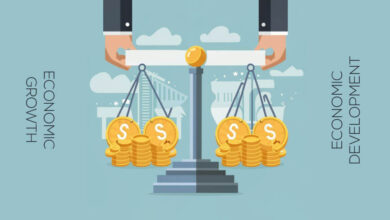Revealing Objectives of Human Resource Management (HRM)
HRM is an abbreviation for Human Resource Management. The goal of human resource management is to efficiently manage people to achieve individual as well as organizational goals. This comprises both the personnel (hiring and maintaining employee information) and payroll functions (retaining the employee information associated with employee payment). Human Resource Management is commonly defined as the engagement, development, and retention of suitably capable personnel to carry out the tasks required to accomplish corporate goals. However, this article will mainly focus on the objectives of human resource management.
Importance of Human Resource Management
HR’s responsibility is not limited to just hiring candidates or terminating their job. It’s more complex than that. Human resources is now a managerial pillar for the company, into the charge of hiring, engagement, budgeting, employee development, and so on.
That is why modern businesses are accepting changes in HR goals. They’re connecting them with the organization’s values. The evolution and development of HRM provide a clearer idea of the subject.

What is the Goal of Human Resource Management?
The major purpose of resource management is to provide a consistent experience for employees and those involved with management and organizational goals. HRM objectives include ensuring resource availability, quick access to data, on-time payroll, compliance, and so on.
According to the history of HRM, the objectives of human resource management are mostly impacted by corporate goals and structure. HRM’s goal is to offer a suitable working environment with all data in one location and efficient operations. So that the workplace is more supportive and developmental to staff.
Main Objectives of Human Resource Management
The real objective or purpose of HRM is not to end up writing in one article. However, below are some of the important objectives presented in the form of points. Such as:-
- Personal Objectives: Support the staff in attaining their individual goals, to the extent an or for such fraction of their job period that these goals motivate them to contribute well to the company. Employees’ personal goals must be maintained, protected, and driven.
- Functional Objectives: For maintaining the department’s contribution, the business should fulfill the demands of the complexity of any type of incident. When HRM is either too complex in itself or just too simple to meet the needs of the company, resources are likely to get wasted.
- Societal Objectives: Being ethically and socially accountable for society’s needs and issues while avoiding the detrimental impact of such demands on the organization’s ability to use its resources for the benefit of society in ethical ways may result in getting restricted.
Other Purposes of HRM
In addition to this, we can say something more about the purpose of HRM. Below is an attempt to point them out neatly. E.g.-
- To acknowledge the role of HRM in generating organizational effectiveness, HRM is not a whole objective in itself, but rather a way to help the company in achieving its core aims.
- To build and sustain organizational structure and maintain ideal working relationships among all fractions of organization and organizational members.
- To provide facilities and chances for individual or group development in order to meet the organization’s growth.
- Achieve the fundamental organizational goals by developing and deploying a capable and motivated workforce.
- Develop coordination among individuals and groups within the organization to ensure organizational integration and bond.
- Efficiently use human resources in the attainment of organizational goals.
- Identify and meet the demands of individuals and groups by providing appropriate and equitable pay, incentives, employee benefits, and social security, as well as measures for demanding work, prestige, recognition, security, and status.
- Maintaining and upgrading diverse circumstances and amenities in order to maintain strong staff morale and human relations.
- HR managers’ primary responsibilities and deliverables include providing leadership traits and opportunities, a healthy working environment in any complexity of incidents, and employee retention.
- The working environment or work culture has a significant impact on HRM and the success of the firm. HR manager’s goal is to bring out the initiatives to improve the workplace culture. Employee empowerment and quick responses contribute to a good work environment
- Managing company/employee data and compliances is also the goal of HRM. Even any fraction mistake can create severe sanctions and loss of respect.
Conclusion:
We are seeing already HR functions are getting evolved at a fast pace. The efficient and smarter technologies have made tasks quite easy. From personnel selection to appraisal to compliance, software-based services make it easier to manage information. This will speed up the decision-making process and boost precision. The purpose of HRM is to strategically benefit the company so that total resources provide the highest potential output to achieve the goal. Human resource management involves crucial decision-making as well as planning. A skilled human resource staff may make or break an organization’s performance in the long run. So, education answers or academically, we should get started and follow these objectives of human resource management!



